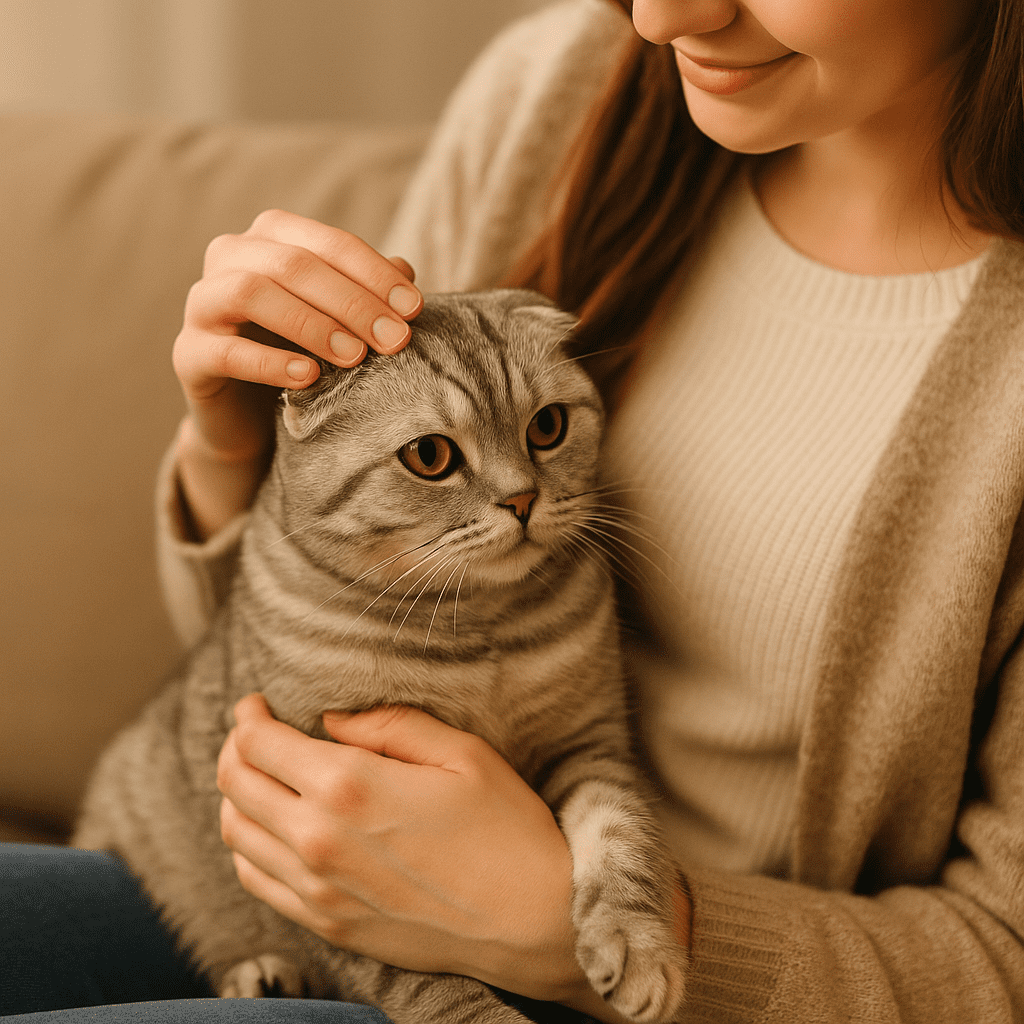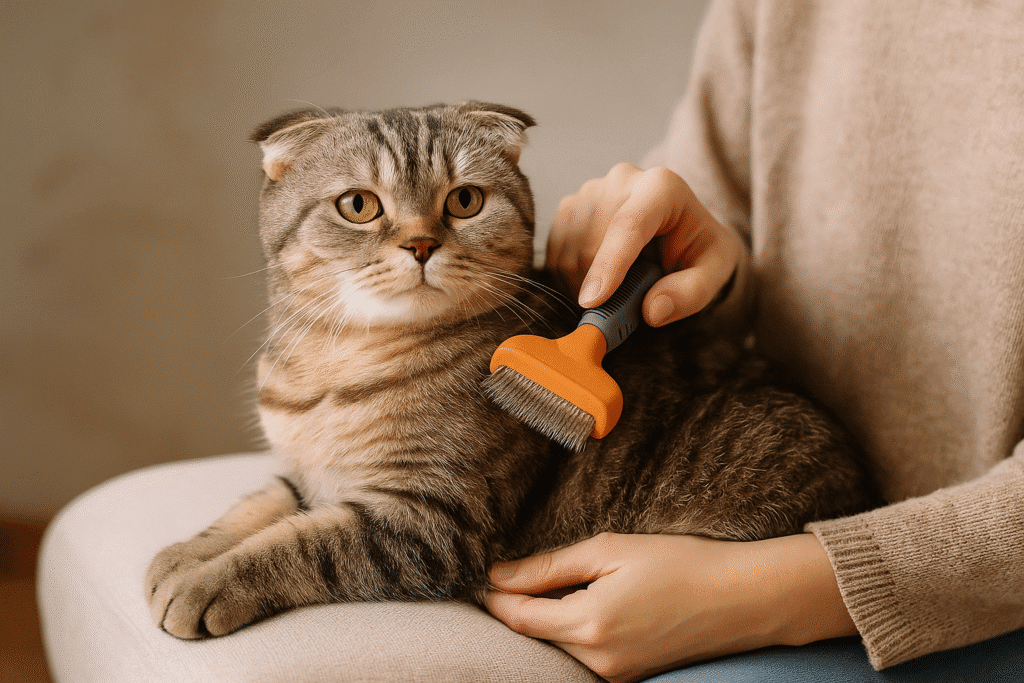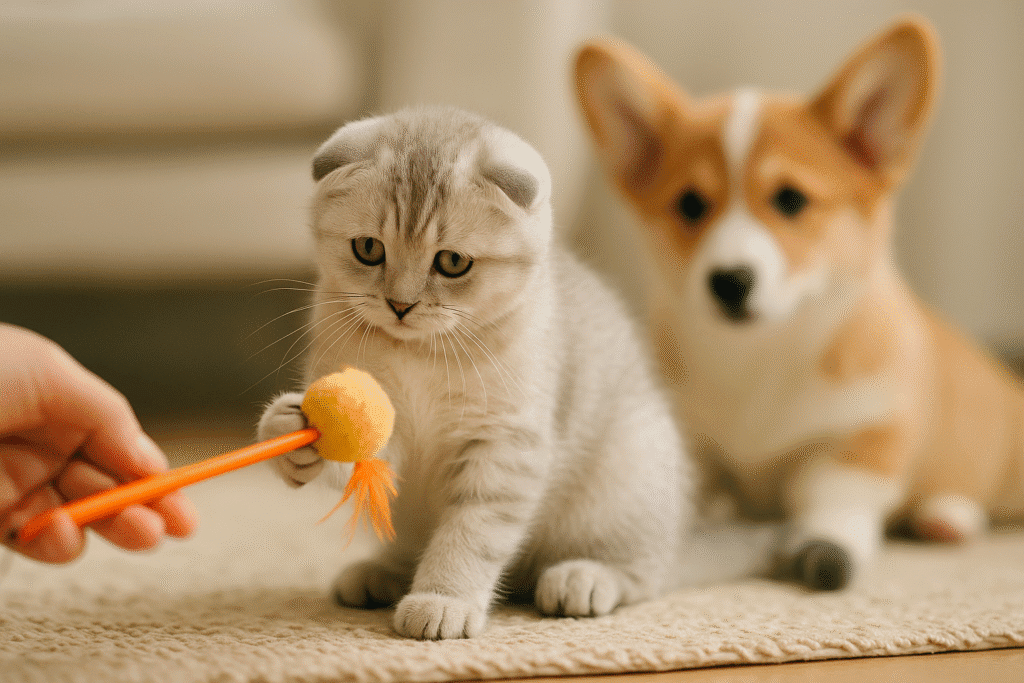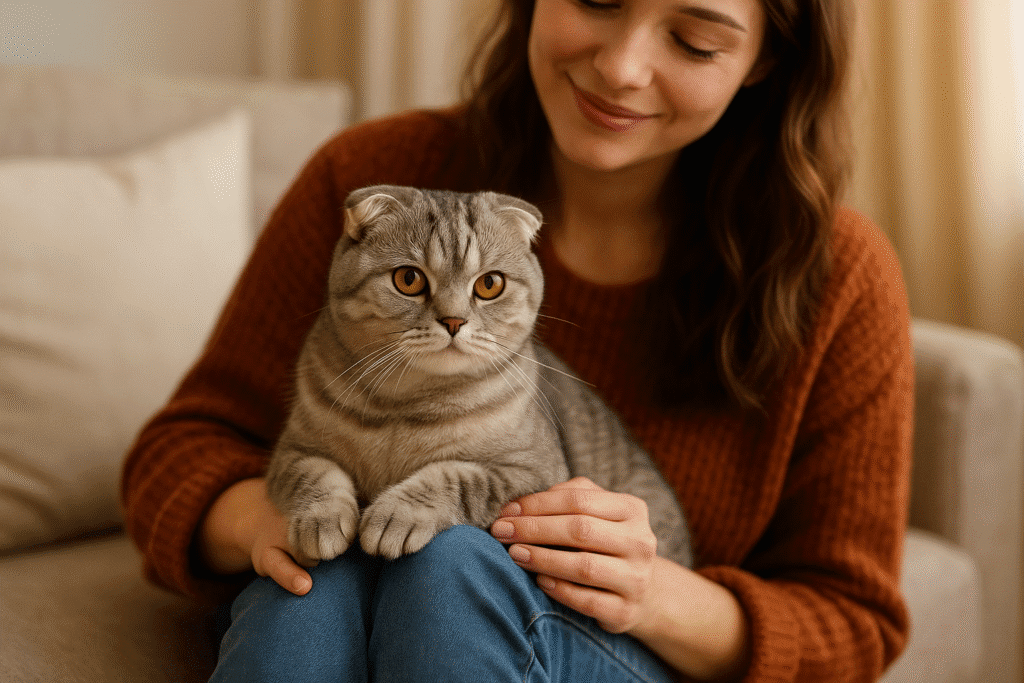The Scottish Fold cat care guide covers everything you need to know about this adorable breed—from personality traits and unique looks to common health concerns and proper grooming. Learn how to raise a happy, healthy Scottish Fold with expert advice and proven care strategies.
Introduction
The Scottish Fold cat care guide is essential for any cat lover considering this breed. Known for their distinctive folded ears and sweet temperament, Scottish Folds have become one of the most beloved cat breeds worldwide. However, behind their charming appearance lies a breed that requires careful attention, especially when it comes to health and grooming. In this guide, you’ll discover everything you need to know about their personality, care requirements, and health issues to ensure your Scottish Fold thrives in your home.

Personality of the Scottish Fold
Gentle and Affectionate Nature
Scottish Folds are famously affectionate and gentle. They enjoy human company and often follow their owners around the house, seeking attention and affection. Their calm temperament makes them well-suited for families, singles, and even seniors.
Playful Yet Relaxed
While they love to play, Scottish Folds are not overly demanding. A balance of interactive toys and quiet companionship is enough to keep them content. They are known to adapt well to apartment living, as long as they receive adequate stimulation.
Unique Sitting Positions
One quirky trait of Scottish Folds is their tendency to sit in unusual positions, such as lying flat on their backs or sitting like a human. This endearing behavior adds to their charm and popularity among cat enthusiasts.
Essential Care for Scottish Folds
Nutrition and Diet
Proper nutrition is vital in any Scottish Fold cat care guide. A balanced diet rich in protein helps maintain their muscle tone and overall health. Since this breed can be prone to obesity, it’s important to manage portion sizes and avoid excessive treats.
Exercise and Enrichment
Though calm in nature, Scottish Folds still require daily play to stay healthy. Use interactive toys, climbing trees, and scratching posts to provide both physical and mental stimulation. This not only prevents obesity but also reduces stress-related behaviors.
Grooming Needs
The grooming requirements of Scottish Folds depend on their coat length. Short-haired Folds need weekly brushing, while long-haired variations require brushing several times a week. Regular grooming helps prevent matting and controls shedding.

Health Concerns in Scottish Folds
Genetic Bone and Joint Issues
One of the biggest challenges in caring for Scottish Folds is their predisposition to a genetic condition called osteochondrodysplasia, which affects cartilage and bone development. This can lead to painful arthritis and mobility issues. Regular veterinary check-ups are essential to monitor and manage symptoms.
Other Common Health Issues
- Obesity: Due to their laid-back nature, they can easily gain weight if overfed.
- Ear Infections: Their folded ears may trap dirt and moisture, increasing the risk of infections.
- Heart Disease: Some Folds are prone to hypertrophic cardiomyopathy (HCM), a common feline heart condition.
(Outbound link: Learn more about osteochondrodysplasia at Cornell Feline Health Center)
Training and Socialization
Litter Training
Most Scottish Folds adapt quickly to litter training. Maintaining a clean litter box is crucial, as cats are naturally hygienic and may avoid dirty spaces.
Socialization with Other Pets
Scottish Folds are typically friendly with other cats and even dogs when introduced gradually. Their calm personality helps them integrate smoothly into multi-pet households.
Positive Reinforcement
Like most cats, Scottish Folds respond best to positive reinforcement. Rewarding desired behaviors with treats or affection ensures long-term success in training.
(Outbound link: More training tips available at PetMD Cat Training Guide)
Living with a Scottish Fold
Owning a Scottish Fold means enjoying a companion who is both affectionate and easygoing. They thrive in environments where they are included in daily family life. However, potential owners should be prepared for health-related responsibilities, as this breed is prone to certain genetic issues.

Frequently Asked Questions (FAQ)
- Are Scottish Folds good family pets?
Yes, their gentle and affectionate temperament makes them excellent companions for families and children. - Do Scottish Folds have special grooming needs?
Short-haired Folds require weekly brushing, while long-haired ones need grooming several times a week. - What health issues are common in Scottish Folds?
They are prone to osteochondrodysplasia, obesity, and ear infections. - Can Scottish Folds live with other pets?
Yes, they are generally friendly and adapt well when introduced slowly to other pets. - How long do Scottish Folds live?
With proper care, they typically live 11–15 years.
Conclusion
The Scottish Fold cat care guide highlights the unique personality, health concerns, and care needs of this beloved breed. While they are affectionate and charming pets, their genetic predispositions require owners to stay vigilant with health checkups and care routines. With the right approach, Scottish Folds can live long, happy, and healthy lives.
Call to Action
Interested in learning more about different cat breeds? Check out our complete cat breed guide here.


핑백: Scottish Fold vs British Shorthair: Which Calm Cat Breed Fits You Best?